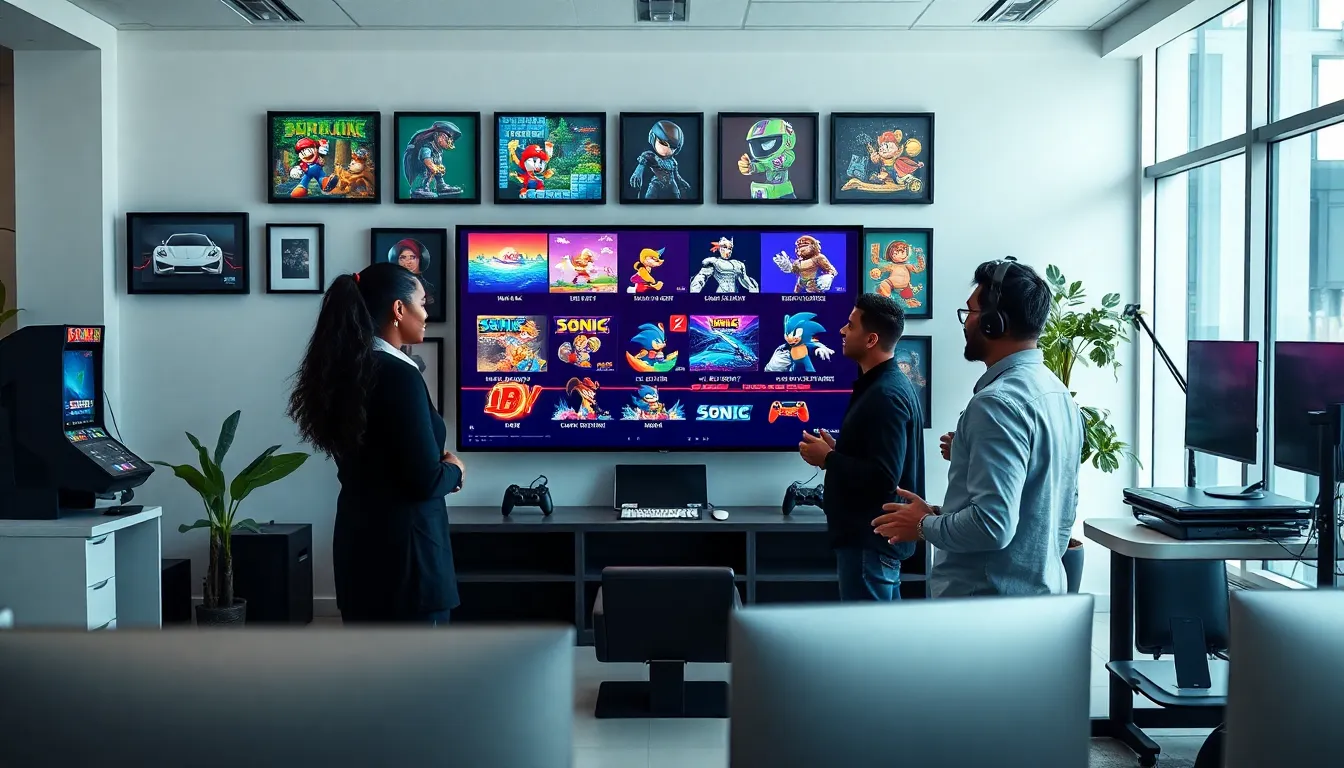Table of Contents
ToggleGaming is more than just a pastime: it’s a vibrant culture that connects millions worldwide. Picture this: a teenager in their basement, surrounded by empty pizza boxes and energy drink cans, utterly immersed in a fantasy world where dragons swoop down and heroes rise. Now, let’s dig deep into the evolution of gaming culture, its communities, and what the future holds. Spoiler alert: it’s not just about button-mashing anymore.
The Evolution Of Gaming Culture

Key Milestones In Gaming History
To understand gaming culture today, we first need to take a stroll down memory lane. Back in the late 70s, gaming was the realm of arcade machines, where quarters ruled. Fast forward to the 80s and 90s, the console wars erupted. Sega and Nintendo battled it out on our living room floors, capturing hearts and minds with characters like Mario and Sonic. That era birthed the RPGs, with titles like Final Fantasy paving the way for immersive storytelling across digital landscapes.
Then came the 2000s, a decade that witnessed the rise of online gaming. Multiplayer experiences reshaped how gamers interacted, turning solitary pursuits into collaborative adventures. Xbox Live and PlayStation Network changed everything, allowing players from different continents to team up (or wreak havoc) in their favorite titles. And let’s not forget the explosion of mobile gaming in the 2010s. Suddenly, everyone had a powerful device that could launch them into pixelated worlds at a moment’s notice.
Impact Of Technology On Gaming
Technology has continuously pushed the boundaries of what games can do. From 8-bit graphics to photorealistic visuals, the leap in quality is nothing short of astonishing. The introduction of virtual reality has prompted developers to create entirely new experiences, allowing gamers to step into their favorite universes as never before.
Also, machine learning and AI are beginning to play significant roles in game development. These technologies are enhancing NPC behaviors, making worlds more dynamic and engaging. As we embrace the cloud, gaming is transitioning from local devices to an online format, giving players access to high-quality games anywhere, anytime.
The Rise Of Online Gaming Communities
Benefits Of Online Interaction Among Gamers
Online gaming communities have blossomed over the past decade, creating a unique space for gamers to share experiences, strategies, and, yes, memes. These hubs are treasure troves of knowledge, where players can get tips on leveling up or even find new friends to play with. The convenience of platforms like Discord and Twitch has transformed interactions, making it much easier for gamers to connect on shared experiences.
Also, these communities are incredibly diverse. Gamers from all walks of life come together, uniting under a common passion. The camaraderie found here can be life-changing, providing social support that extends beyond the screen. Many make lifelong friends while navigating dungeons together or arguing over whether pineapple belongs on pizza.
Challenges Of Online Gaming Communities
But, it’s not all rainbows and virtual flowers. Online gaming communities can harbor toxicity and harassment. The anonymity of the internet can lead to players feeling emboldened to behave poorly, creating a negative atmosphere for many. Developers have started to take this issue seriously, implementing systems to report harassment and promote positive interactions.
Also, while competition can be fun and exhilarating, it can also create pressure that turns a game into a stressful obligation rather than an enjoyable experience. Striking a balance between competitiveness and fun is crucial for maintaining a healthy community.
Game Reviews And Personal Experiences
Featured Games: An In-Depth Review
What’s a gamer’s ultimate guide without some juicy game reviews? Let’s jump into a few standout titles that have captured the community’s attention. Take Elden Ring, for instance. Bursting with intricate lore, rich visuals, and gameplay that challenges even the most seasoned players. Reviewers rave about its open-world exploration, where every corner hides a new secret, enticing gamers to lose themselves in its expansive landscape.
Then we have The Last of Us Part II, a title that made waves not just for gameplay but for its profound storytelling. It raises moral questions and explores themes of revenge and loss in a way that sticks with players long after the credits roll. Games like these highlight how storytelling in games has evolved, often rivaling more traditional media.
The Importance Of Game Storytelling
Storytelling in games has become a pivotal aspect of the experience, often elevating gameplay to an art form. Narratives create emotional depth, drawing players into worlds where they genuinely care about the characters. Games like God of War leverage mythology and personal drama to provide not just escapism but also profound insights into the human condition.
These narratives allow gamers to engage with complex themes in ways that resonate on personal levels. They’re not just playing a game: they’re embarking on journeys filled with challenges and triumphs, making each victory even sweeter.
Future Trends In Gaming
Predictions For Upcoming Technologies
As technology surges forward, what does the future hold for gaming? Expect to see an even deeper integration of virtual reality and augmented reality. Imagine walking through your neighborhood while battling real-world monsters, a blend of reality and gameplay that seems ripped from a sci-fi novel.
Also, advancements in AI are likely to create smarter, more adaptive gameplay experiences. NPCs could evolve from simple bots into nuanced characters that respond dynamically to player choices. This shift could radically change how stories unfold and how players interact with their environments.
The Future Of Game Development
The way games are developed is also rapidly shifting. Crowdfunding and early access models are helping indie developers flourish, giving rise to innovative titles that might not have made it otherwise. Even large studios are now looking towards player feedback during the beta phases of development, aiming to create experiences that feel tailored to the gamer.
Also, cross-platform play is becoming less of a luxury and more of an expectation. With players clamoring for unified experiences across all devices, developers are adapting to meet these demands.




